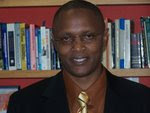Africa needs more than Nobel Peace Prize honors
Ndirangu Wachanga
Issue date: 10/12/05 Section: VIEWS
For the second year running, Africa has made ostensibly unlikely history in the global circles. For a continent that has been synonymous with natural catastrophes and man-made tragedies, Africa stands with pride for yet again bagging the coveted 2005 Nobel Peace Prize.
One of its sons, Mohamed ElBaradei, a 63-year-old lawyer, has been recognized for his superlative achievements.
ElBaradei has jointly been feted with the International Atomic Energy Agency by the Norwegian Nobel Committee for "efforts to prevent nuclear energy from being used for military purposes and to ensure that nuclear energy for peaceful purposes is used in the safest possible way."
ElBaradei takes the baton from Kenya's renowned environmentalist, Professor Wangari Muta Maathai, who took the Nobel glory to East Africa last year. Recognition of ElBaradei and his organization's effort in making our increasingly insecure world better is as judicious as it is timely.
ElBaradei is the second Egyptian to bring honor of this magnitude to his country. In 1999, Ahmed Zewail, an Egyptian, too, won the chemistry prize, an authentic demonstration of this country's accomplishments in science.
In congratulating the laureate, U.N. Secretary-General Kofi Annan described the award as a well-timed reminder of the sensitive need "to make progress on the issue of nuclear non-proliferation and disarmament."
Annan's sentiments echo the wisdom of Alfred Nobel, who suggested the prize be awarded to honor those formidably committed to abolishing or reducing standing armies. ElBaradei's commitment was noted by the Norwegian Nobel Committee that has been concentrating on the "struggle to diminish the significance of nuclear arms in international politics, with a view to their abolition."
The laureate studied law at the University of Cairo and earned a doctorate in International law at the New York University School of Law in 1974. He has been a diplomat for more than 40 years.
The African continent will look at him and his predecessor as beacons of moral consciousness and from them learn how to cultivate a culture of peace. And the entire world must heed these words: If the world does not change course, we risk self-destruction.
ElBaradei, a resolute lawyer, but not with controversies, has served International Atomic Energy Agency as director general for two terms and seems set for a third one. Together with Hans Blix, a Swedish diplomat and politician, he led the U.N. weapons inspectors in Iraq as the U.N. sought evidence of the availability of weapons of mass destruction.
While the African continent celebrates the achievements and recognition of one of its own, the real significance of this award and glamour that should accompany it should be an end to factors surrounding the continent's economic stagnation.
Four decades ago, Africa identified its unholy trinity: diseases, illiteracy and poverty. War was declared on these enemies.
This trinity has gone through a metamorphosis. It is now, for a number of reasons, a scarring multi-headed ghost. Resolving conflicts facing the continent is the best award worth celebrating. For after toasting is over in Norway, the scarring monstrosity facing the continent will remain more lethal than the threat of atomic weapons.
Ndirangu Wachanga is a journalism graduate student from Nairobi, Kenya. He can be contacted at dwachanga@gmail.com

No comments:
Post a Comment